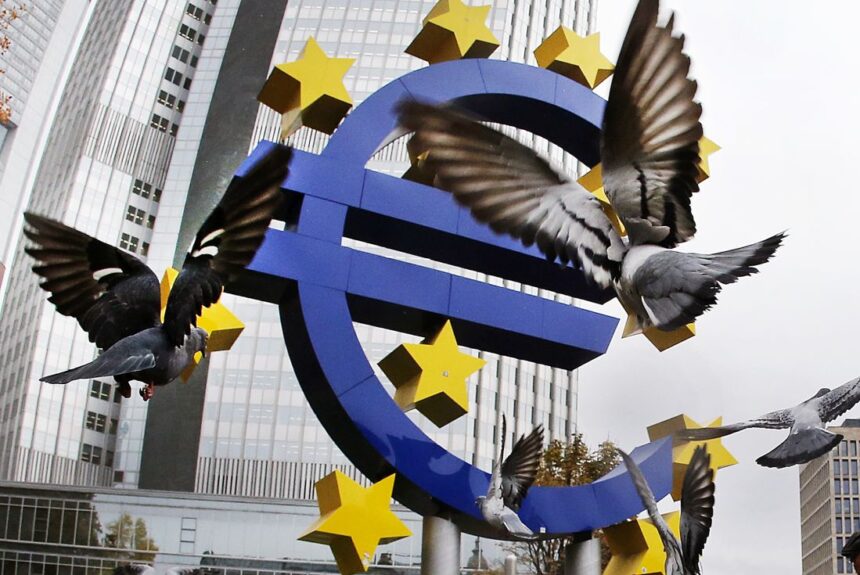The decision was made in the shadow of new duties imposed by US President Donald Trump
In a new reduction in interest rates by 0.25%, the third by the beginning of the year, today the European Central Bank.
After the reduction, the ECB’s basic deposit rate is 2.25%.
Today’s decision by the ECB’s Board of Directors was taken in the shadow of new duties imposed by US President Donald Trump.
His decision to reduce the interest rate The facility of acceptance of deposits – the interest rate at which the Board of Directors gives the direction of monetary policy – is based on its updated evaluation of inflation prospects, the dynamics of underlying inflation and the intensity with which monetary policy is transmitted.
EKT estimates that the process of downgrading inflation is on the right track. Inflation continued to evolve as experts expected, with general inflation and the core of inflation receding in March. Inflation of services has also declined significantly in recent months. Most of the underlying inflation indicates that inflation will stabilize around the medium -term goal of the Board of Directors for 2% on a sustainable basis. The rate of wage growth slows down and the profits partly absorb the impact of wage growth rate, which is still high, on inflation. The euro zone economy has developed some resistance to global disorders, but the prospects for growth have worsened due to increasing commercial tensions. Increasing uncertainty is likely to reduce the confidence of households and businesses and the adverse and volatile reaction of markets to commercial tensions are likely to lead to tightening funding conditions. These factors can further affect the financial prospects for the euro area.
The new reduction had been almost discounted by the market as the minutes of the previous meeting of the Board of Directors in March was realized that central bankers were oriented to reduce interest rates. It is recalled that the ECB had predicted that the imposition of duties could lead to a reduction in eurozone GDP by about half a percentage point, referred to the EIA.
The interest is focused on the clarifications that ECB Chief Christine Lagarde is going to give in a press conference. In particular, analysts’ attention focuses on whether after the new reduction in interest rates, monetary policy levels remain on restrictive territory. Such a phrase would mean that further relaxation of policy remains the basic line. Analysts are also awaiting an updated forecasts on the breadth of the impact of the imposition of duties on the EU economy on both the development and inflation. It is noted that analysts provide for an increase in consumer prices by 1.9% in 2026 (from 2.3% this year) and 2% in 2027 (as the ECB’s official forecasts), a downward revision by 0.1 percentage point for each year. They estimate that the economy will grow by 0.8% this year (against 0.9% which is the latest forecast of the ECB) and 1.2% in 2026.







